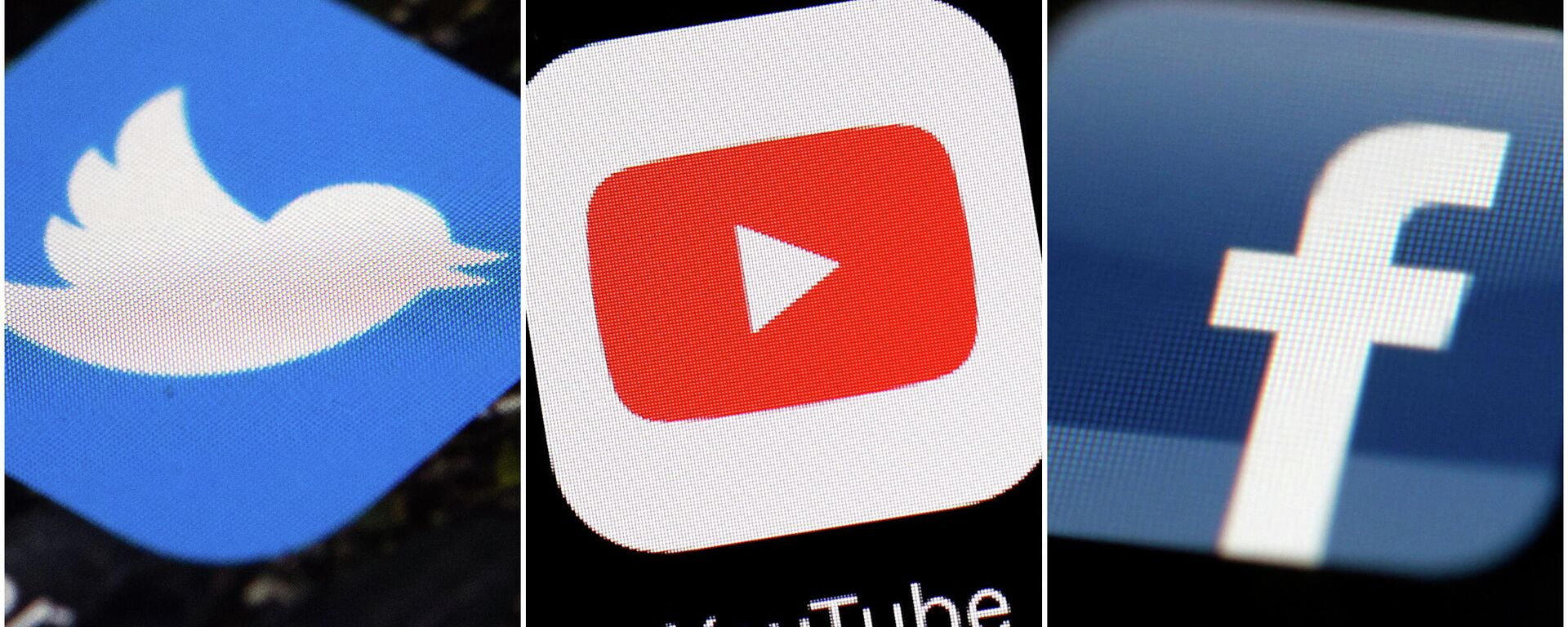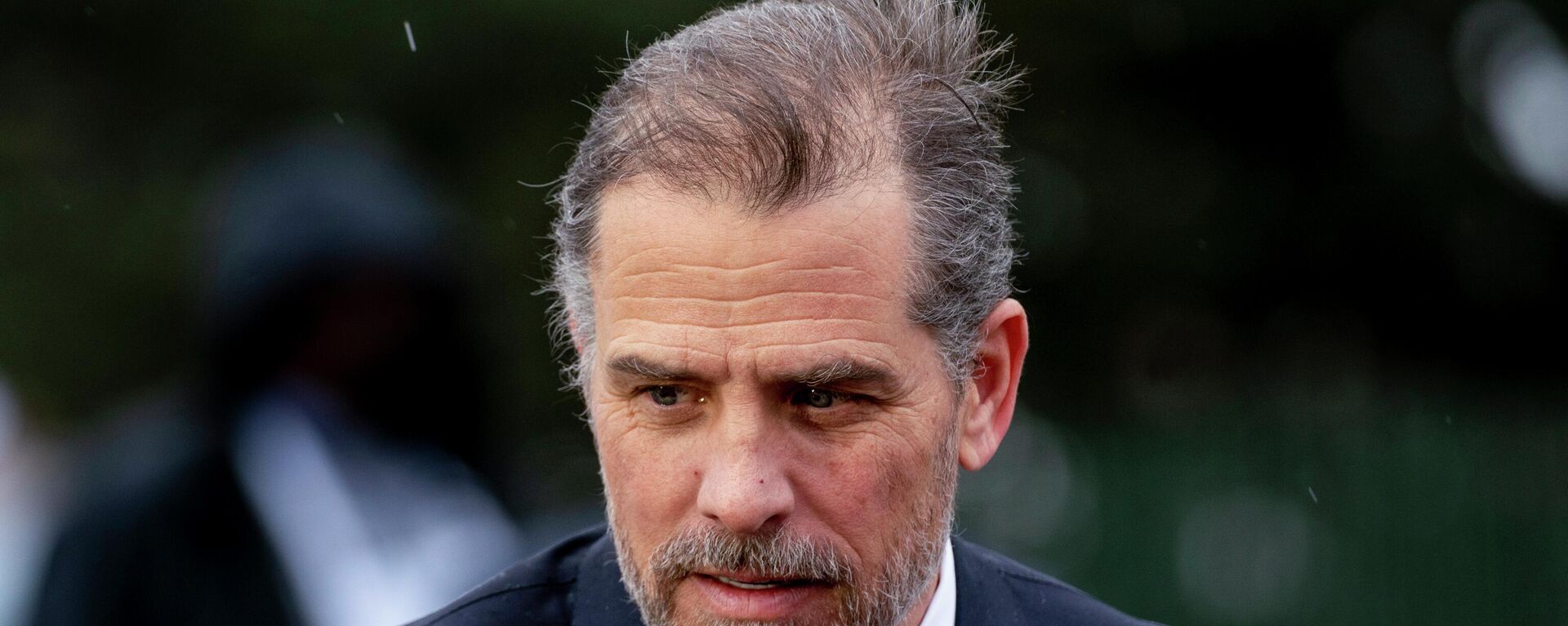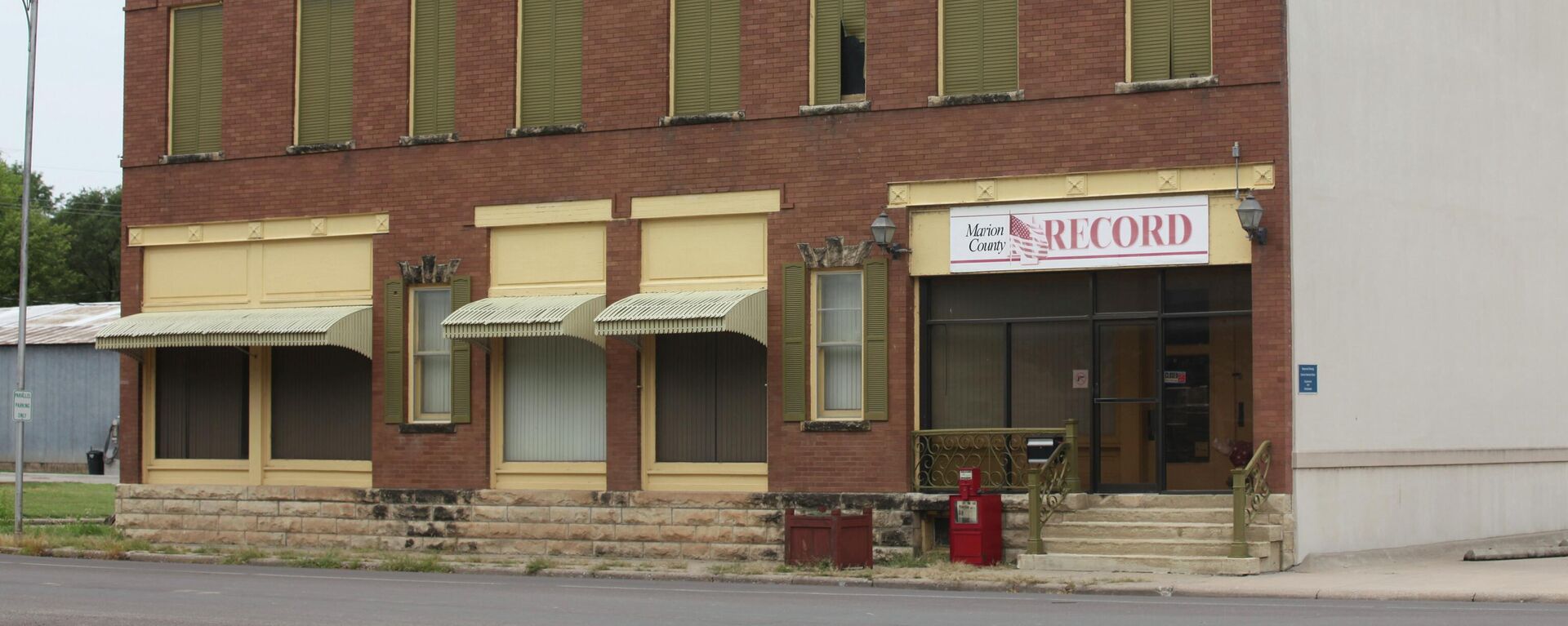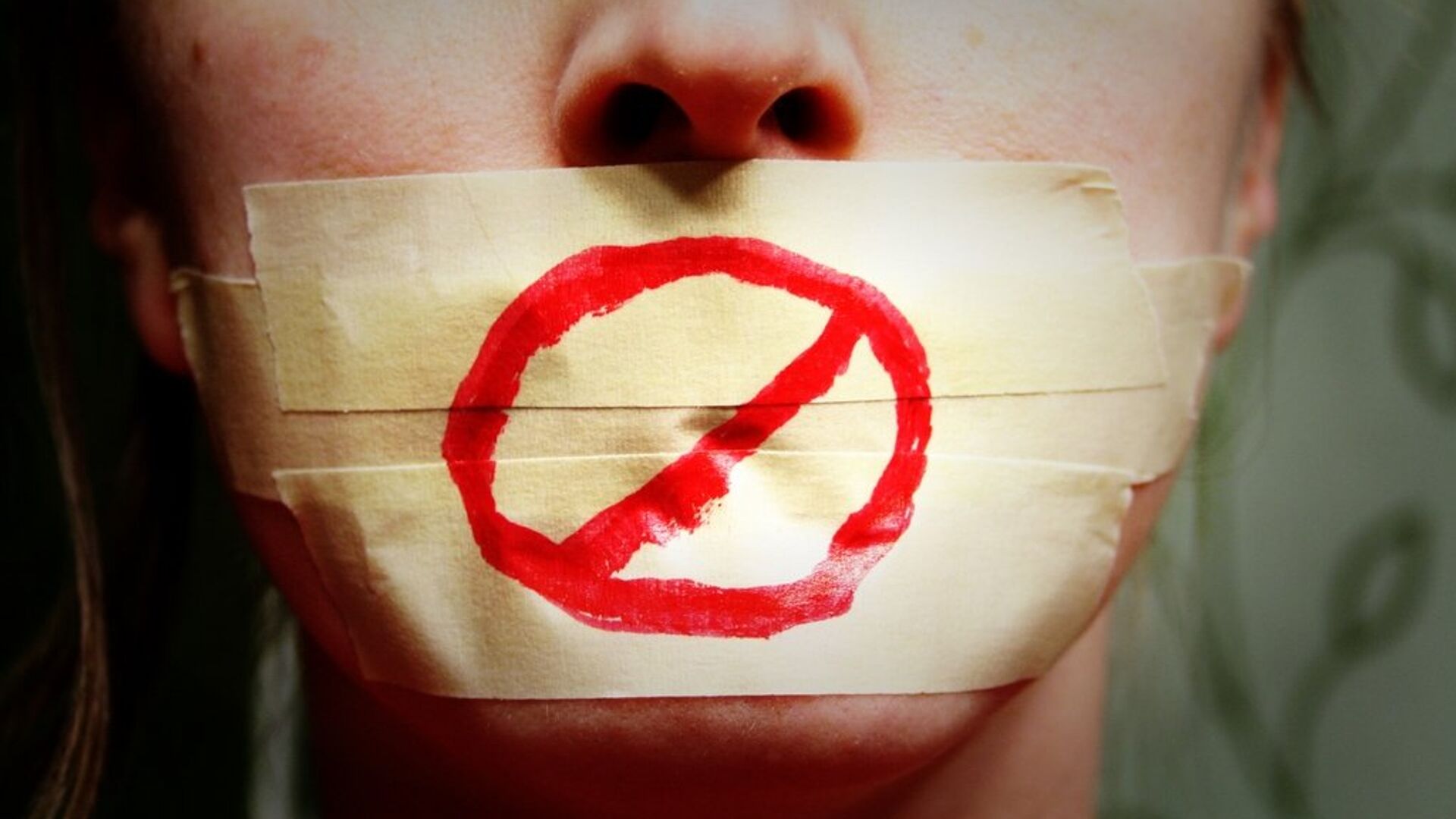https://sputnikglobe.com/20230904/social-credit-lite-unraveling-australias-orwellian-crackdown-on-bank-clients-1113105776.html
Social Credit Lite? Unraveling Australia’s Orwellian Crackdown on Bank Clients
Social Credit Lite? Unraveling Australia’s Orwellian Crackdown on Bank Clients
Sputnik International
The phenomenon of de-banking – the freeze or closure of personal or business accounts based on ‘reputational risks’, including views that may conflict with those of the government, has been gaining steam in many Western countries once touted as bastions of free speech and liberal democracy. Now, the Land Down Under seems to be the latest victim.
2023-09-04T13:01+0000
2023-09-04T13:01+0000
2023-09-04T13:29+0000
world
australia
china
nigel farage
sputnik
x (formerly twitter)
https://cdn1.img.sputnikglobe.com/img/104783/49/1047834955_0:37:1024:613_1920x0_80_0_0_904bbd14d78a09565e0038e1c16442f8.jpg
Australia's second largest bank is taking a headlong jump toward a social credit-style nightmare once thought to be limited to the realm of gritty, fictional cyberpunk dystopias, arming itself with the authority to de-bank clients for a broad range of reasons associated with speech.The National Australia Bank's (NAB) terms and conditions, set to step into effect November 1, feature a new "unacceptable account conduct" addendum enabling the banking behemoth to "investigate instances where it identifies or is made aware that an account or an electronic banking service is being used in a financially abusive manner."If it deems it necessary "to protect a customer or another person from financial abuse," the NAB reserves the right to "suspend, cancel or deny an account holder’s access or use of the account, card or an electronic banking service."Private Institution Taking on State FunctionsAustralia’s speech laws are pretty strict, far stricter, for example, than in the United States, where the First Amendment to the Constitution makes no general exception even for offensive, repugnant or hateful expression, unless it directly incites imminent criminal activity.For example, Australia's Racial Discrimination Act of 1975 deems it illegal to "do an act" that’s "reasonably likely to offend, insult, humiliate or intimidate another person or group if the act is done because of the race, color or national or ethnic origin of the person or group." At the same time, Australian common law restricts speech relating to incitement, conspiracy, obscenity, and sedition.What makes the NAB's guidelines dangerous is that by taking upon itself the right to independently arbitrate whether or not a person or organization has committed abuse against another person, a financial institution will be doing a job ordinarily restricted to the state, effectively serving as judge, jury, and executioner.Tip of De-banking IcebergWorse yet is the potential for misuse. The third decade of the 21st century has been somewhat of a renaissance for forces opposed to free speech, with governments and private corporations restricting freedom of access to information (including Sputnik), arbitrarily banning social media accounts using entire departments of staffers whose only job it is to engage in censorship (as the drama surrounding Elon Musk’s takeover of Twitter revealed), and instituting new draconian legislation targeting free speech online.Banking restrictions are the latest, and perhaps most insidious, form of cracking down on the free speech rights of those outside the political mainstream, since they are designed not only to "de-platform," but to literally strip "offenders" of access to money – the resource people need to feed, house and clothe themselves.And while Western media and officials have focused extensively on forms of banking-based social control, with a "social credit lite"-style system that has slowly crept into many Western countries - as organizers of the Canadian trucker protests, journalists from the Grayzone who saw their GoFundMe fundraiser frozen recently, and conservative politician Nigel Farage, will attest.AI-Assisted CrackdownThe rollout of the NAB's new policy comes following an experiment that began in January 2022 to block over 200,000 so-called "abusive transactions," using "technology which searches for key words and phrases" to weed out foul language in messages sent via payment transfers.The bank even boasts that its "abusive transaction" language bot has about 1,300 words and phrases in its inventory, including not only naughty words, but special characters and spaces substituting the words.Road to Censorship Hell is Paved With Good IntentionsThe NAB's "unacceptable account conduct policy" does not appear to be an independent initiative. In June, the Australian government issued new de-banking "guidance," reminding financial institutions operating in the country that they are "subject to a range of other laws that may be relevant to decisions about whether to begin providing banking services to a customer, and throughout the course of the business relationship," including based on "human rights" and "discrimination"-related concerns.Seeking to protect human rights and defend against discrimination is all well and good. The problem, as more and more people around the world are finding out, is when seemingly well-meaning and innocuous laws and regulations are misused to target those who are politically or socially undesirable.
https://sputnikglobe.com/20230825/whats-behind-eus-censorship-of-social-media--research-engines-1112894305.html
https://sputnikglobe.com/20230817/how-western-big-tech-firms-wipe-away-hunter-bidens-many-sins-1112668508.html
https://sputnikglobe.com/20230815/chilling-story-for-press-freedom-raid-on-small-town-newspaper-sparks-first-amendment-concerns-1112600263.html
australia
china
Sputnik International
feedback@sputniknews.com
+74956456601
MIA „Rossiya Segodnya“
2023
News
en_EN
Sputnik International
feedback@sputniknews.com
+74956456601
MIA „Rossiya Segodnya“
Sputnik International
feedback@sputniknews.com
+74956456601
MIA „Rossiya Segodnya“
australia, banking, bank, land down under, censorship, de-banking, free speech, expression, abusive language
australia, banking, bank, land down under, censorship, de-banking, free speech, expression, abusive language
Social Credit Lite? Unraveling Australia’s Orwellian Crackdown on Bank Clients
13:01 GMT 04.09.2023 (Updated: 13:29 GMT 04.09.2023) The phenomenon of de-banking – the freeze or closure of personal or business accounts based on “reputational risks,” including views that may conflict with those of the government, has been gaining steam in many Western countries once touted as bastions of free speech and liberal democracy. Now, the Land Down Under seems to be the latest victim.
Australia's second largest bank is taking a headlong jump toward a social credit-style nightmare once thought to be limited to the realm of gritty, fictional cyberpunk dystopias, arming itself with the authority to de-bank clients for a broad range of reasons associated with speech.
The National Australia Bank's (NAB) terms and conditions, set to step into effect November 1, feature a new "unacceptable account conduct"
addendum enabling the banking behemoth to "investigate instances where it identifies or is made aware that an account or an electronic banking service is being used in a financially abusive manner."
The latter includes "coercive or controlling behavior to limit a person’s access to or use of funds; making profane, derogatory, discriminatory or harassing comments to any person; making or promoting threatening or abusive language to any person," and "making or threatening physical or psychological harm to any person."
If it deems it necessary "to protect a customer or another person from financial abuse," the NAB reserves the right to "suspend, cancel or deny an account holder’s access or use of the account, card or an electronic banking service."
Private Institution Taking on State Functions
Australia’s speech laws are
pretty strict, far stricter, for example, than in the United States, where the First Amendment to the Constitution makes no general exception
even for offensive, repugnant or hateful expression, unless it directly incites imminent criminal activity.
For example, Australia's Racial Discrimination Act of 1975 deems it illegal to "do an act" that’s "reasonably likely to offend, insult, humiliate or intimidate another person or group if the act is done because of the race, color or national or ethnic origin of the person or group." At the same time, Australian common law
restricts speech relating to incitement, conspiracy, obscenity, and sedition.
What makes the NAB's guidelines dangerous is that by taking upon itself the right to independently arbitrate whether or not a person or organization has committed abuse against another person, a financial institution will be doing a job ordinarily restricted to the state, effectively serving as judge, jury, and executioner.
Also troubling is the legally "fuzzy" terminology of the new "unacceptable account conduct" rules. What constitutes a "harassing comment"? Do they include insults left in the comments section of a YouTube video or on social media in a stupor at 3 am in the morning? What do threats to exact "psychological harm" mean? What about "profane comments"? Can a couple of drunken bar buddies threaten to de-bank one another after hurling some "profane comments" one another’s way? The guidelines don't say.
Tip of De-banking Iceberg
Worse yet is the potential for misuse. The third decade of the 21st century has been somewhat of a renaissance for forces opposed to free speech, with governments and private corporations restricting freedom of access to information (
including Sputnik), arbitrarily banning social media accounts using entire departments of staffers whose only job it is to engage in censorship (as the drama surrounding Elon Musk’s takeover of Twitter
revealed), and instituting
new draconian legislation targeting free speech online.

25 August 2023, 18:46 GMT
Banking restrictions are the latest, and perhaps most insidious, form of cracking down on the free speech rights of those outside the political mainstream, since they are designed not only to "de-platform," but to literally strip "offenders" of access to money – the resource people need to feed, house and clothe themselves.
And while Western media and officials have focused extensively on forms of banking-based social control, with a "
social credit lite"-style system that has slowly crept into many Western countries - as organizers of the
Canadian trucker protests, journalists from the Grayzone who saw their GoFundMe fundraiser
frozen recently, and conservative politician
Nigel Farage, will attest.
The rollout of the NAB's new policy comes following an experiment that began in January 2022 to block over 200,000 so-called "abusive transactions," using "technology which searches for key words and phrases" to weed out foul language in messages sent via payment transfers.
"Right now, we’re blocking around 15,000 abusive messages each month sent through payment channels and today’s move further puts financial abusers on notice that we will do everything we can to protect innocent people," Michael Chambers, the head of the NAB's Customer Vulnerability Department (yes, such a department actually exists), said in a statement earlier this year.
The bank even
boasts that its "abusive transaction" language bot has about 1,300 words and phrases in its inventory, including not only naughty words, but special characters and spaces substituting the words.

17 August 2023, 17:21 GMT
Road to Censorship Hell is Paved With Good Intentions
The NAB's "unacceptable account conduct policy" does not appear to be an independent initiative. In June, the Australian government issued
new de-banking "guidance," reminding financial institutions operating in the country that they are "subject to a range of other laws that may be relevant to decisions about whether to begin providing banking services to a customer, and throughout the course of the business relationship," including based on "human rights" and "discrimination"-related concerns.
Seeking to protect human rights and defend against discrimination is all well and good. The problem, as more and more people around the world are finding out, is when seemingly well-meaning and innocuous laws and regulations are misused to target those who are politically or socially undesirable.

15 August 2023, 04:36 GMT





